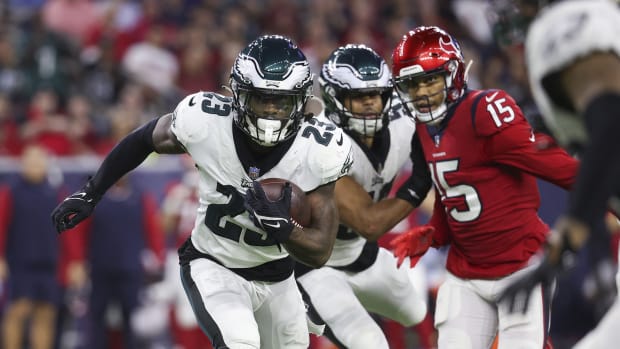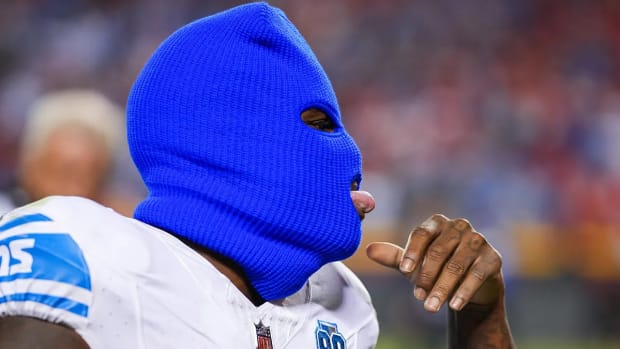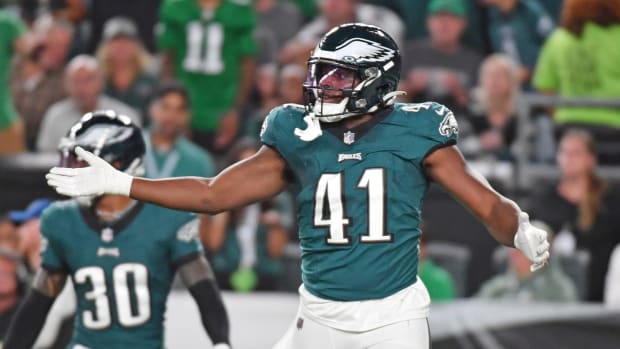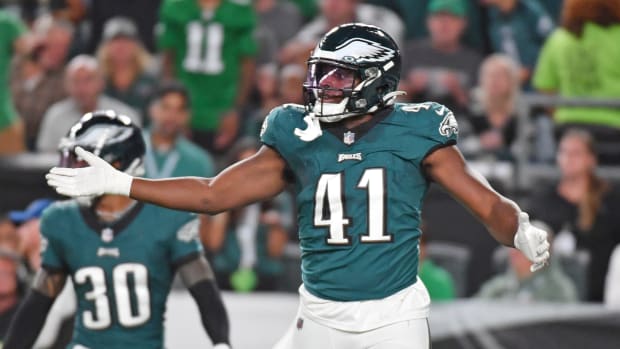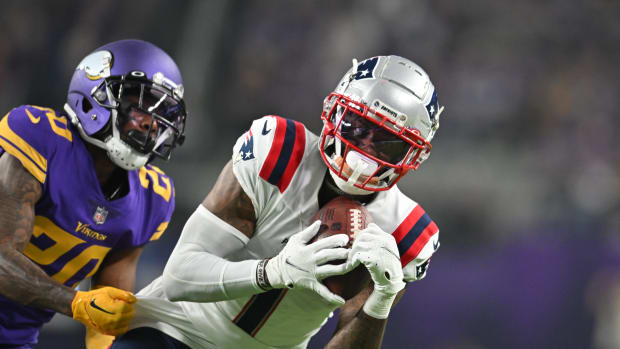Inside Howie Roseman's Trade Philosophy
To the average Eagles fan, the situation was pretty simple - Philadelphia desperately needed help at receiver and perhaps the best wideout in the world, DeAndre Hopkins, was peddled from Houston to Arizona for below market value.
The question from there is a simple one.
Why in the world didn’t general manager Howie Roseman, who has the reputation of being one of the more aggressive general managers in the NFL, pick up the phone and beat the Cardinals' package of a second-round pick and running back David Johnson for Hopkins and a late-round pick?
Roseman was very candid when discussing the issue with reporters earlier this week, explaining that simplifying things like that often do not result in apples-to-apples comparisons.
“The Hopkins one, I get that this is a hot-button topic for us,” Roseman admitted. “I think that, again, we gotta also look at it from the perspective of the other team. What their ask is for us may be different, depending on their valuation of players they get in trades or where draft picks are. So, it's not always apples to apples.”
In other words, a similar package from the Eagles that fans may regard as superior could be anything but to Bill O’Brien and Houston, the only audience that matters in this particular scenario.
“I'm not saying that as an excuse,” said Roseman. “I'm just saying the reality of the situation is there are a lot of trades that we look at where I'll call the GM and say, you know, 'We talked about this. Why would you do it for this?'
"And they'll say, 'Well, I really like this player' or 'I like where this pick is.' So, I think there's a lot that goes into it and we're not always in control of the results on that.”
There were other variables in the mix for the Eagles as well, like the organization’s need for draft picks after two consecutive years of just five, coupled with the new knowledge that two were ultimately sacrificed for another need with the trade for Lions cornerback Darius Slay.
“In terms of what we did there with draft picks, yeah, ideally we didn't wanna give up any draft picks,” said Roseman.
So why Slay, a really good player at a need position, and not Hopkins, a superstar at another need position?
Decisions like that always include many issues - in this case, moving parts as well as contract and precedent were weighed.
“When we looked at the value of another player (Slay) we could get and what he was making over a two-year period, plus the draft picks and plus, maybe some of the guys we let go, we kind of looked at it, ‘OK, here's the options: You can have this guy, this guy, plus your three and your five or you can come out with it and have Slay, Hargrave and McLeod and Parks and Robey-Coleman,'” said Roseman.
“And so when we looked at that and the way to improve our team, and where that goes from a resource perspective, that's how we kind of made the decision.”
The casual observer is seemingly always in the micro, but roster building is a macro exercise, according to Roseman.
“We didn't look at it just in a vacuum about kind of one-for-one," said the GM. "We kind of looked at it, here are four assets or four resources that we're letting go. What can we do with those resources and what do we think makes more sense to make the team better, not only this year but going forward?”
At the time of the Hopkins trade an NFL source also told SportsIllustrated's EaglesMaven that the star receiver’s contract demands were also out of bounds for the Eagles, something Roseman essentially himself confirmed while tip-toeing around tampering rules.
“I think another part of it on trading for a player is also the difference about the new money and extending guys from a new-money perspective who have years remaining on their deal and what that costs versus just ripping up a contract,” said Roseman. “And I'm not trying to be specific to anyone here because I certainly don't want to get tampering charges filed, just trying to give you more perspective.”
While Slay wanted an extension past the final year of his deal with Detroit, Hopkins wanted his contract with three years remaining ripped up for a new one and that’s just not the way Philadelphia is going to do business, no matter how good the player might be.
John McMullen covers the Eagles for SI.com. You can listen to John every day at 4 ET on ESPN 97.3 in South Jersey and reach him at jmcmullen44@gmail.com or on Twitter @JFMcMullen
